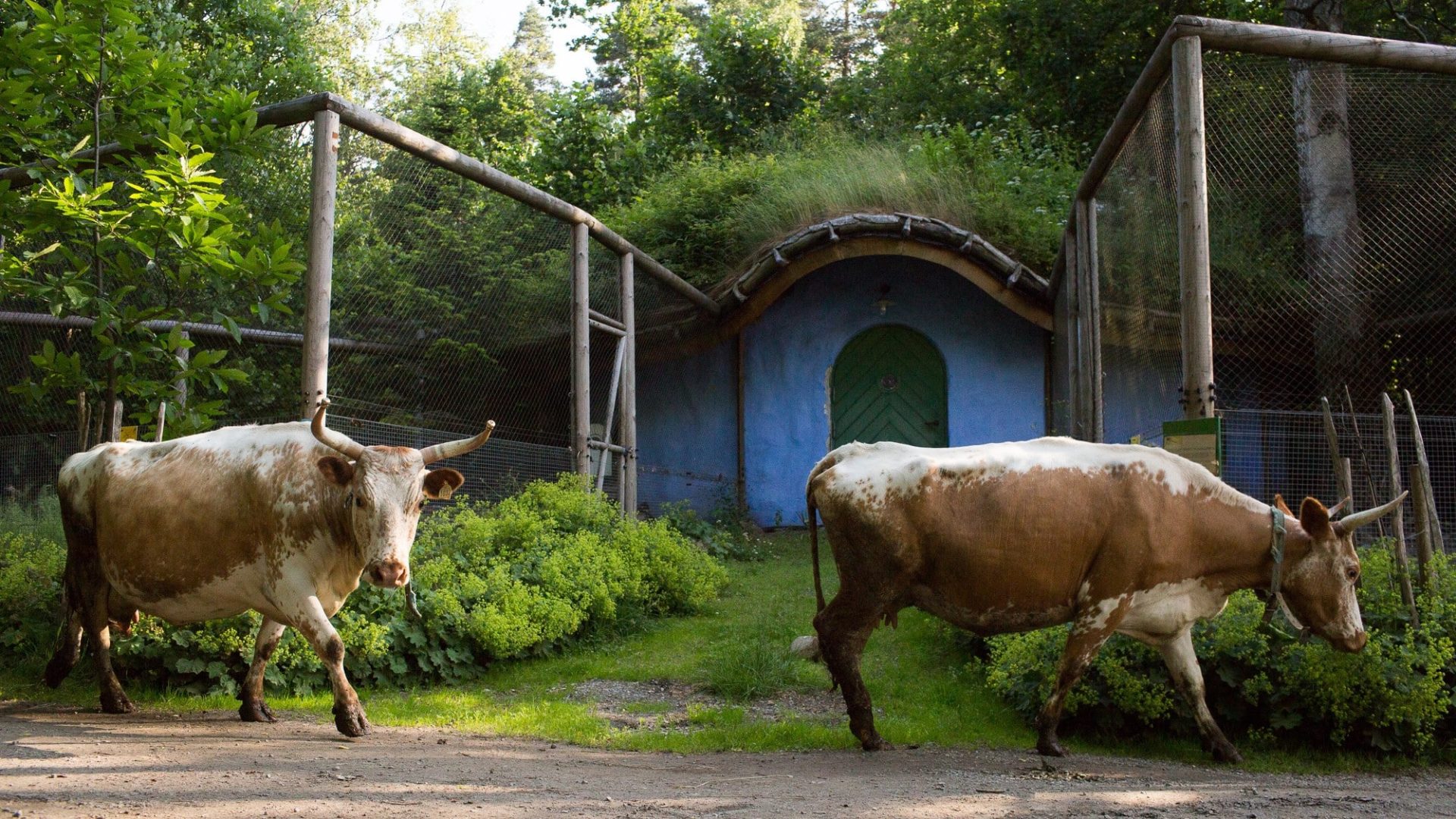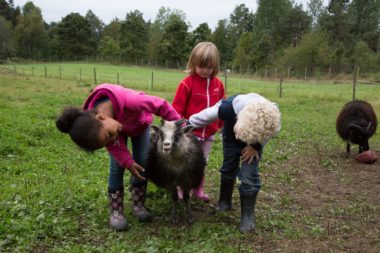


Welcome to Ramme Farm Visitor Centre, where sustainability and animal welfare are central.
Here you get to meet the animals, learn about how they live and what organic animal husbandry entails.
We are committed to safeguarding endangered livestock breeds, as an important part of our cultural history and genetic diversity. Almost all of our animal species are endangered.
If you’re really lucky, you might witness a chicken pecking its way out of the egg, or a small sprout just about to break through the soil in search of sunlight. Every season has its own unique surprises.
Animals have been kept at Ramme since the Bronze Age. Edvard Munch also adopted this lifestyle. Today you will find livestock such as horses, cows, pigs, sheep, chickens, geese, and ducks, as well as exotic bird and fish species as part of the park area. We keep bees and produce our own honey.
Organic agriculture requires high standards of animal welfare. The animals have outdoor areas for use all year round. We leave calves, lambs, and piglets with their mother for as long as possible. At our farm, the milk is reserved for the calf, but if there is anything left over, we make cheese, butter, or other goodies. In season it is possible to buy meat directly from the farm, but mainly we produce everything to be served here.
Organic farming stimulates more sustainable development and is a more climate-friendly option than large-scale agriculture. The products are cleaner, more flavourful, and have higher nutritional value than non-organic products.
Ramme Farm has been run organically since 1986. We do not use artificial fertilisers or chemical pesticides. Organic farming requires knowledge and consideration but provides extra value and quality in agriculture. Hans Kjærås, the vegetable gardener at Ramme Farm, has extensive experience of organic farming. Vegetable production has a five-year crop rotation, to maintain soil fertility and prevent diseases and weeds.